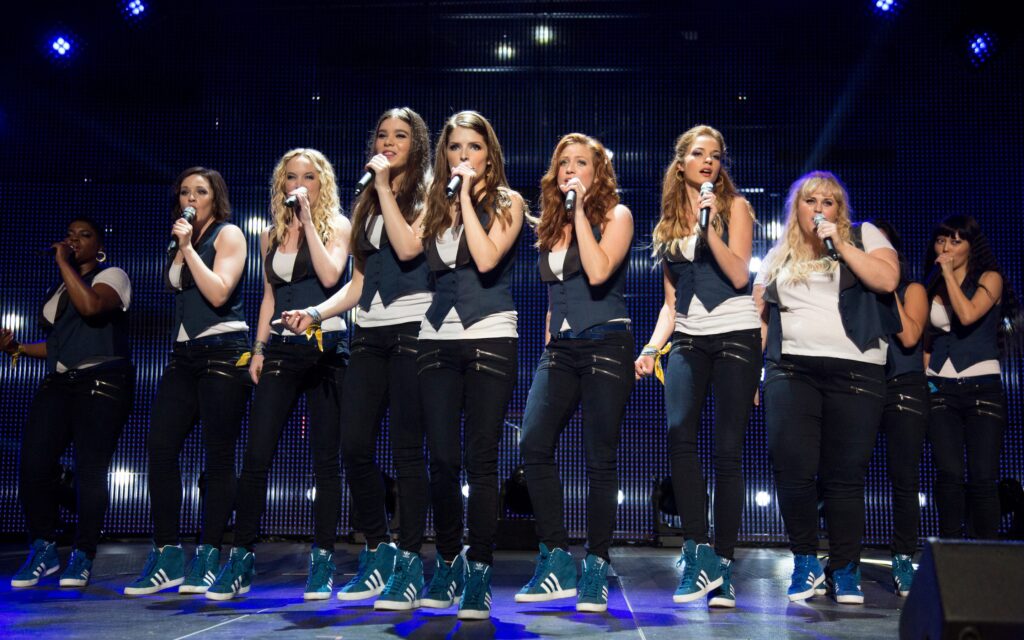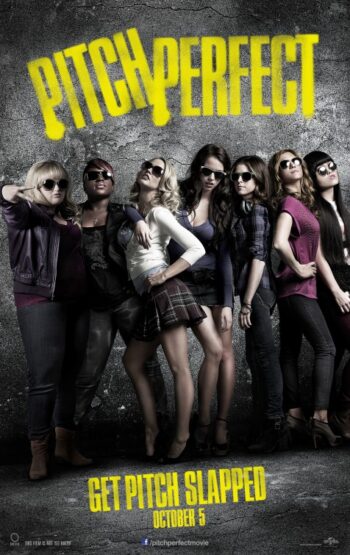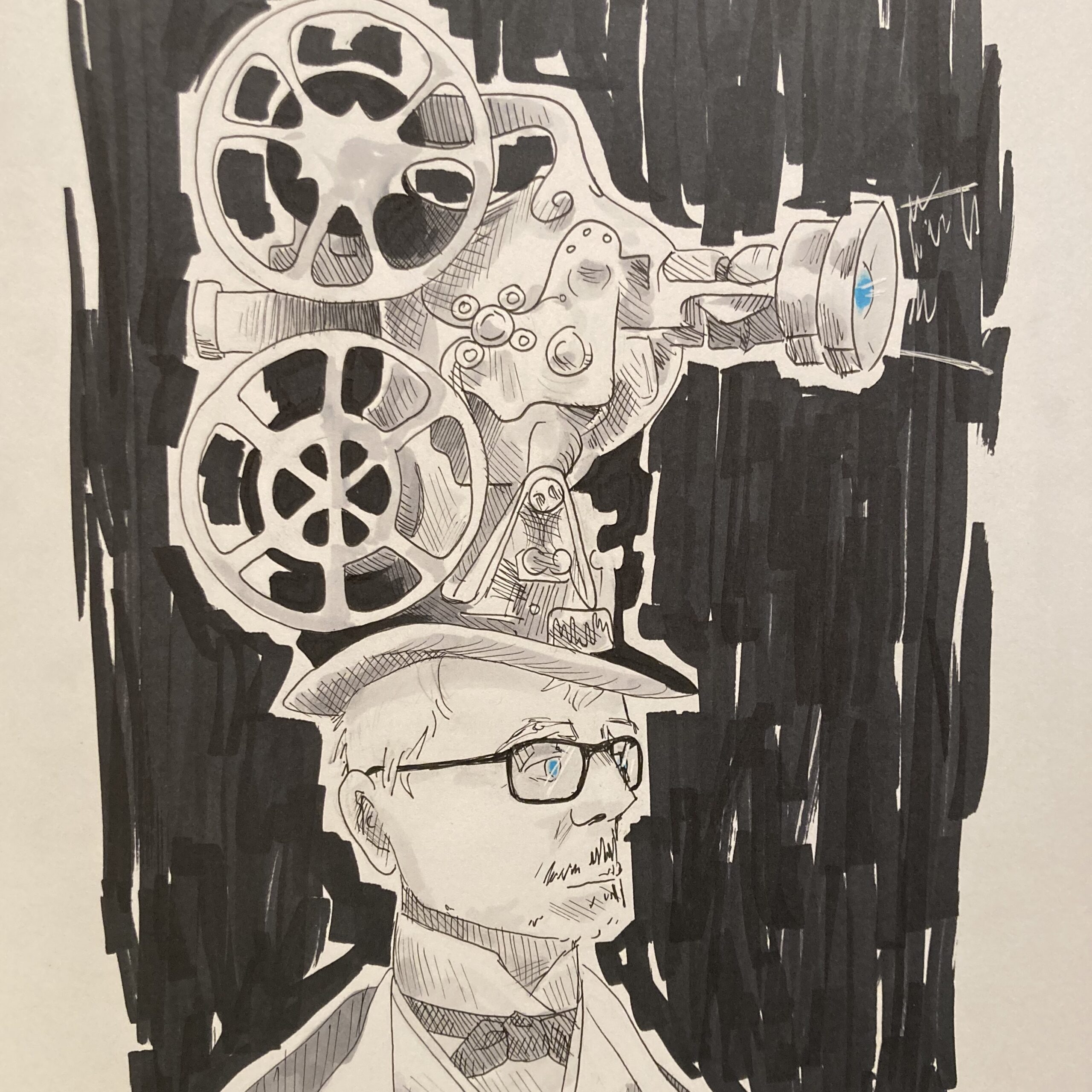“I got my ticket for the long way ’round.”
Boy world and girl world occupy distinct spheres of youthful activity. In the former go fruitful competition and physical vigor; in the latter rest beauty and cooperation.
In Jason Moore’s 2012 fantasy Pitch Perfect the roles merge, as the boys reform through learning common courtesy while the girls turn aggressively inventive. In the end, of course, all named characters turn into young men and women, and we hum along to a silly little story with a handful of punchy song and dance numbers.
The story of Pitch Perfect centers on The Barden Bellas, an a cappella musical group at Barden University, which is the kind of college setting where stoners lounge on vast greenswards, the student body is studiously mixed race and multi-ethnic, and the dorm rooms resemble pages from an Ikea catalog. Becca (Anna Kendrick), a loner with ambitions of becoming a music producer, slouches onto campus where her father is a dean only to make a bargain with him: she’ll give college a one-year go by really trying to fit in, and if it doesn’t work out, he’ll fund her move to LA where she’ll no doubt take over the music biz, pronto.
Never mind the layers of privilege in Becca’s life (she’s white, cisgender, petite, long-haired, artsy but emo, and what a smile! [this is Anna Kendrick, after all]), the movie’s arc takes shape when Becca and a group of non-conforming young women join The Bellas to stretch beyond the stylistic box of Barbie clones.
To the movie’s credit, this effort is everywhere directly called out inside the story. Commentators note how The Bellas are new and different, oddly shaped and less disciplined. Students respond with disgust and then admiration as the changing beauty and performance standard turns into something fun. And, as the movie progresses, The Bellas become a cohesive music-making entertainment machine that consists of multi-part harmony, beat box, bass, and occasional solos. The point is watching the girls compete, firstly among themselves to form the team, and then with the rest of the a cappella world as they become national champions, beating out their Barden U male counterparts and natural romantic partners in the effort.

Among notable characters the standout may be Lilly Onakuramara (Hana Mae Lee), a soft-spoken Asian Bella who makes a snow angel in a vomit puddle, offers to show the team a dead body, and generally bugs-out her eyes, as if to say, “This isn’t very good as a movie’s movie, but it is a good time. Just ask your little sister or cousin, or the girl on the block who isn’t allowed to play when the boys grab a football.”
–September 30, 2018



